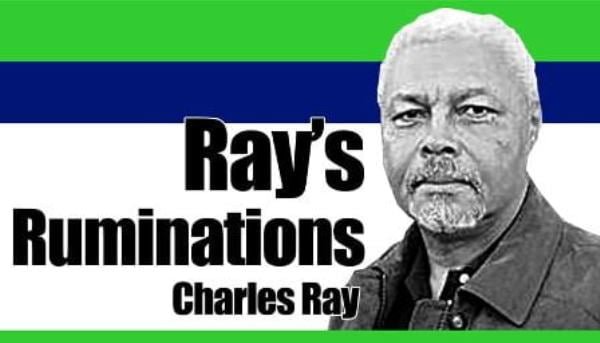
Looking at politics in my home country at the moment, with certain Christians seemingly lined up against everyone else (lay people as well as other denominations), I am often reminded of Albert Einstein’s comment, “science without religion is lame; religion without science is blind.” Science is concerned with facts, discerning the underlying truth of a matter. Religion, on the other hand, is based on faith.
It is, according to noted scientist, the late Carl Sagan, ‘a construct created to bridge the gaps in our understanding of our world and ourselves . . . it is a cultural mortar manifesting itself in a spectrum of benevolent and malevolent social influences . . . contains a resonating mystic core, reaching to the depths of every human’s inmost self . . . and it provides a means to explain the great mysteries, from the mechanisms of nature to the purpose of humanity. In other words, religion provides some solace until science finds the answers—or, so it should be. In effect, both Einstein and Sagan argue that science and religion complement each other—or they should.
My own experience has led me to a view that is more in line with Neil deGrasse Tyson, noted American scientist and host of the PBS show, ‘Cosmos: A Spacetime Odyssey,’ who believes that science and religion ‘can work together and support each other.’ The problem is that a small but vocal minority of hard-core evangelicals vehemently resist this concept and insist on the primacy of their fundamentalist views, who doggedly insist that science is incompatible with religion.
I should point out here that deGrasse Tyson is an agnostic, a person who does not deny the existence of a Supreme Being, but accepts and admits that he does not know and does not try to refute such existence.
We’ve all seen, if not unfortunately met, such people. They’re the ones who use the Bible to deny the existence of climate change, and in the past were the ones who used the Bible to justify slavery. They insist that the Bible is the literal word of God and become extremely agitated if you point out to them that the Bible is a compilation of texts written by people long after the birth and death of Jesus; that they were written originally in Aramaic, a Semitic language that originated among the Arameans in the ancient region of Syria and for three thousand years served as a language of public life and administration of divine worship and religious belief in the region we know of as the Biblical lands; and that the Bibles they read today have been translated from Aramaic to Latin, and then to English; so there’s no way we can say with absolute certainty that they are the literal words of the authors much less a Supreme being.
I once had a discussion with a work colleague on this issue who refused to budge from the position that his King James version of the Bible, which is based on a text that was commissioned in 1604 and published in 1611 under the sponsorship of King James VI and I to be the official Bible of the Church of England, was, in fact, the literal word of God. Our conversation broke down when I pointed out that historical research has shown that a number of edits, both directed and inadvertent, were introduced into that initial translation that continue to this day. I tried to point out that I was not disputing that God exists, only that we had to view things with a more open mind. The door to his mind was closed.
I had an earlier encounter with this attitude as a twelve-year old. I attended a Baptist church in my small East Texas home town, and from the age of six, attended Sunday school regularly. One Sunday, when the ‘water into wine’ miracle was introduced by the teacher, I explained that the porous wine casks of the era, which would absorb the wine which could later be reabsorbed by water to make a credible wine (a theory which I proved in college with whiskey barrels), the teacher became enraged and ejected me, not just from the Sunday school class but from the church. That kind of ended it for me, and except for funerals and weddings I’ve not been back. Which is sad in a way, because I found the fellowship and companionship comforting—until I disagreed with someone’s faith and offered facts to support my view.
Unfortunately, for some people, faith and fact cannot comfortably inhabit the same universe, and that represents a loss for us all. – NWI




